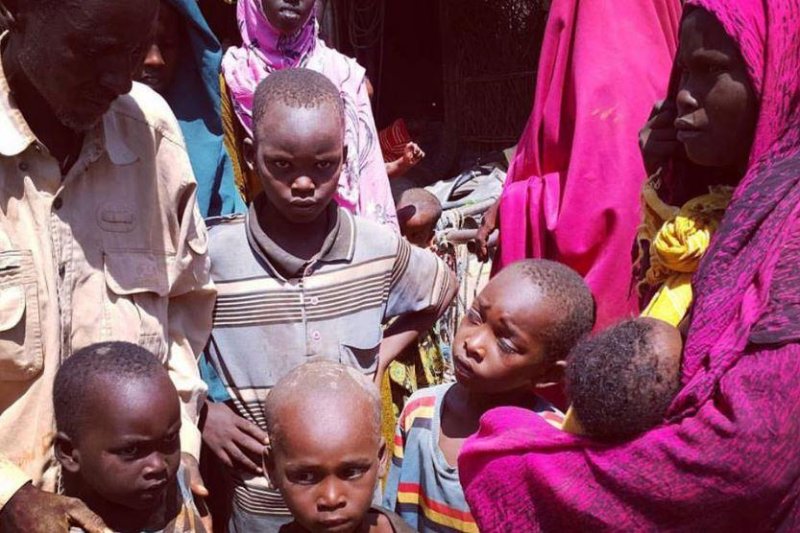A Somali family made destitute by drought, arrives in Doolow, a southern town near the border with Ethiopia, hoping to find food, water and aid. Photo contributed by
UNICEF Somalia
March 5 (UPI) -- At least 110 people -- mostly women and children -- died from hunger over 48 hours in one region of drought-stricken Somalia, the nation's prime minister said.
Hassan Ali Khaire announced the number of fatalities during a drought committee meeting in Mogadishu on Saturday. The region mentioned was in the rural areas in southwestern Somalia, where the drought is the worst in the nation.
"I can confirm that Bay region in the south and other parts of Somalia are deteriorating rapidly," Khaire said, "and my estimation is that half of the country's population has felt the impact of this drought."
Four days earlier, President Mohamed Abdullahi Farmajo declared the drought a national disaster.
More than 6.2 million people -- half the population of Somalia -- are lacking food and clean water because rivers are drying up from little rain, according to the Food and Agriculture Organization of the United Nations. It put the number at 5 million in September.
"The drought response committee briefed the PM about the humanitarian crises in the country that is threatening the lives of the people and their livestock who are on the brink of dying from hunger and watery diarrhea disease," Khaire's office said.
Khaire pleaded for "business people and everyone to contribute to the drought response efforts aimed at saving the lives of the millions of Somalis dying of hunger and lack of water."
UNICEF reports 1.4 million children could die of severe acute malnutrition in four nations: Somalia, South Sudan, Nigeria and Yemen.
"If we do not scale up the drought response immediately, it will cost lives, further destroy livelihoods, and could undermine the pursuit of key state-building and peace-building initiatives," United Nations' humanitarian coordinator for Somalia, Peter de Clercq, said last month.















